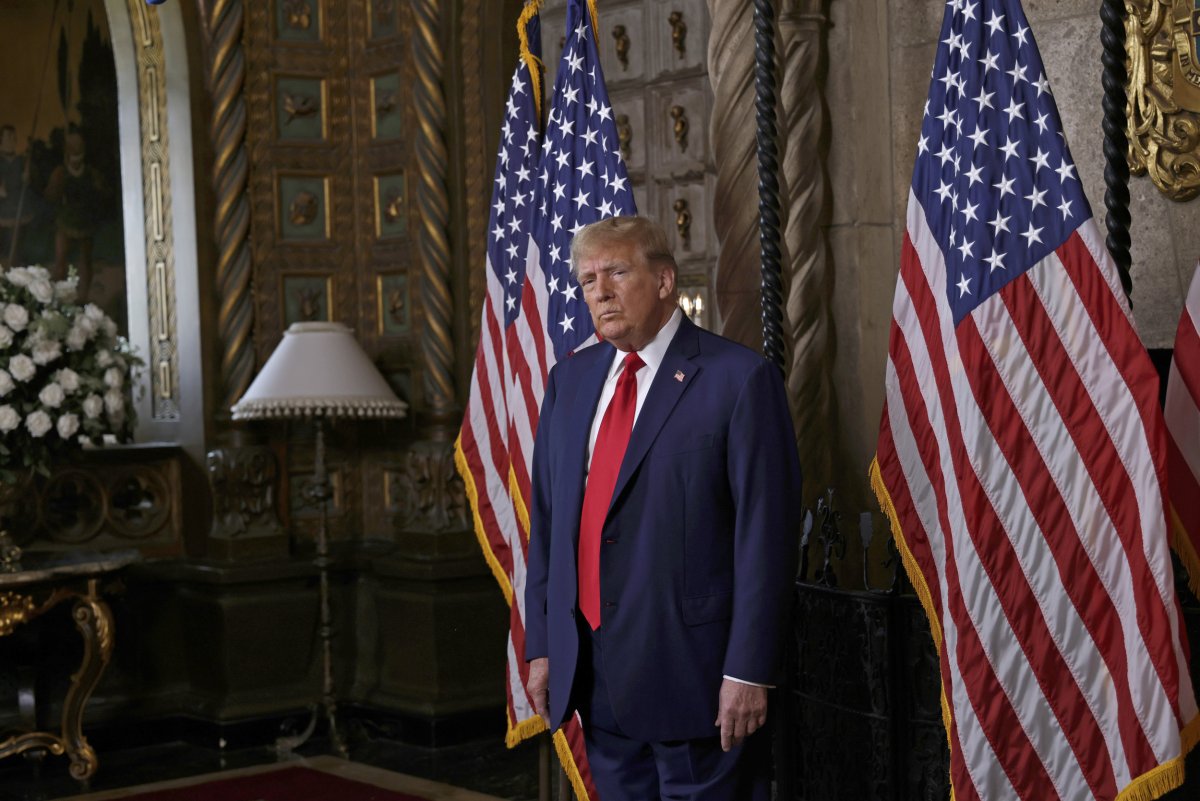Donald Trump's recent comments on Truth Social's financial robustness—he asserts there is over $200 million in cash and no debt—come as the platform's stock plummets and financial disclosures reveal a number of possible fiscal troubles.
While one expert says that Trump's comments on the finances are "probably correct," they have ignited scrutiny over potential securities fraud, raising the stakes for the former president and his early-stage media business venture.
Against a backdrop of the stock falling nearly 30 percent since it spiked following a merger with blank-check company Digital Acquisition World Corp just two weeks ago, and serious financial losses detailed in SEC filings, some experts say Trump's declarations may have misled investors and potentially violated securities law.

The former president President Trump championed the financial stability of Truth Social last Thursday in a post on the platform, saying that the company held over "$200 million in cash and zero debt," and that his follower count is "growing fast," indicating that the company's user base could be growing despite its issues raised by financial disclosures.
That message could be a violation with the U.S. Securities and Exchange Commission (SEC), the governing body of the stock market, according to Michael Klausner, Professor of Law at Stanford Law School.
Trump's portrayal of the financial windfall as inherent to Truth Social rather than a lifeline from DWAC, coupled with the fact that he said his follower count is growing fast, paints a misleading picture of the company's standalone viability and could influence investor perception under false pretenses, Klausner told Newsweek on Monday.
"A false statement of 'material' information is securities fraud," Klausner said while warning it could be a case of "pumping."
"Pumping is a term used to refer to such a statement, but not necessarily by a company insider, as in Trump's case," Klausner added. This could be considered a violation under the Securities Exchange Act of 1934, which governs the statements made by company owners that could affect investor decisions.
The professor of law noted that the term "growing fast" used by Trump could be ambiguous and misleading unless it is supported by genuine growth metrics, which contrasts with the company's documented financial challenges.
"If it is growing slowly and Trump calls it 'fast' there is some room for the SEC or a court to decide," Klausner said. "It would be a judgment call."
The SEC did not respond to Newsweek's request for comment sent last week.
Meanwhile, Trump's assertions contrast with the platform's pre-merger fiscal reality, according to Kin Lo, CPA Professorship in Accounting at UBC Sauder School of Business, where prior to the completion of the merger with DWAC, Truth Social was grappling with a burn rate that saw it hemorrhaging $58 million against a mere $4.1 million in revenue.
"My opinion is that the [$200 million in cash and zero debt comments that Trump made] are probably correct," Lo told Newsweek. He made clear, however, that before the merger, Truth Social itself had very little money.
"The company had only $2.5 million in cash, and $70.1 million in liabilities as [of] December 31, 2023," he said.
Before the merger, Truth Social was a separate entity from DWAC, and its survival appeared to be contingent upon the merger's success, according to words used in its own official filings, Lo noted.
"What this says is that the top management of Truth Social believed that the company will not survive beyond the end of 2024, unless a merger with DWAC is completed," Lo said.
Post-merger, the financial situation of the Trump-owned company appeared rosier with DWAC's cash infusion, ostensibly clearing debts and providing a much-needed lifeline.
Lo said, however, that "DWAC had no real operations (no revenues). All of its funding came from the initial stock issuance and any interest or investment income," suggesting a strategic move to leverage the financial markets for capital rather than following traditional business growth strategies.
"Why would the funders of DWAC willingly merge with a company (TMTG) that is about to collapse, and give TMTG the majority of shares in the merged company," Lo asked. "Is there a bona fide business reason for doing so, or is something else going on?"
Given the volatile nature of its financial standing and the public interest in its high-profile leadership, Klausner told Newsweek that he thinks that if Trump's claims aren't an SEC violation, "it is only a matter of time before Trump violates the securities laws by falsely claiming facts about Truth Social."
Uncommon Knowledge
Newsweek is committed to challenging conventional wisdom and finding connections in the search for common ground.
Newsweek is committed to challenging conventional wisdom and finding connections in the search for common ground.
About the writer
Aj Fabino is a Newsweek reporter based in Chicago. His focus is reporting on Economy & Finance. Aj joined Newsweek ... Read more
To read how Newsweek uses AI as a newsroom tool, Click here.








